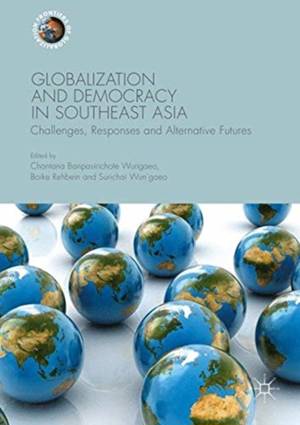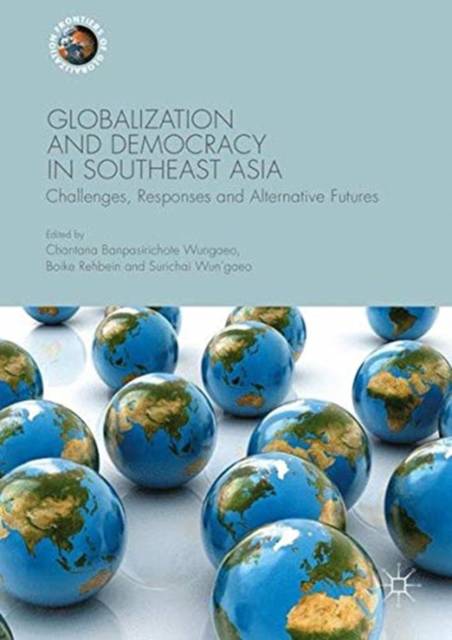
- Afhalen na 1 uur in een winkel met voorraad
- Gratis thuislevering in België vanaf € 30
- Ruim aanbod met 7 miljoen producten
- Afhalen na 1 uur in een winkel met voorraad
- Gratis thuislevering in België vanaf € 30
- Ruim aanbod met 7 miljoen producten
Globalization and Democracy in Southeast Asia
Challenges, Responses and Alternative Futures
Omschrijving
This book questions why Southeast Asian nation states are struggling to adopt full-fledged liberal democracy and attempts to better understand the relationship between globalization and models of democracy.
Country studies are covered mostly by native Southeast Asian scholars who analyse recent developments as well as specific concerns that have arisen from political crises, citizen uprisings, ethnic identity politics, political reforms, social justice and inequality, and the persistence of the political elite. The collection highlights factors which have impacted the different regional and national paths taken such as: the legacy of the Cold War, rapid economic development and liberalization, external economic globalization, the important role of informal politics, powerful elites, and weak but emerging middle classes.
This book will be of interest to scholars and students of regional studies of Southeast Asia, Democracy, Sociology, Politics and GlobalizationStudies.
Specificaties
Betrokkenen
- Uitgeverij:
Inhoud
- Aantal bladzijden:
- 312
- Taal:
- Engels
- Reeks:
Eigenschappen
- Productcode (EAN):
- 9781349846733
- Verschijningsdatum:
- 4/11/2020
- Uitvoering:
- Paperback
- Formaat:
- Trade paperback (VS)
- Afmetingen:
- 148 mm x 210 mm
- Gewicht:
- 394 g

Alleen bij Standaard Boekhandel
Beoordelingen
We publiceren alleen reviews die voldoen aan de voorwaarden voor reviews. Bekijk onze voorwaarden voor reviews.










